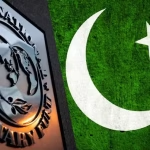WARSAW, Poland (AP) — Poland launched measures Wednesday to phase out all Russian oil imports by the end of 2022, as Germany issued a warning about natural gas supplies and urged users to save energy in a hint of rising economic tensions in Europe over Russia’s conflict in Ukraine.
Poland’s reliance on Russian oil has already been cut significantly, according to Prime Minister Mateusz Morawiecki.
Morawiecki said at a press conference that Poland was beginning the most drastic strategy among European countries to wean itself off Russian energy supplies.
Poland announced a ban on Russian coal imports on Tuesday. Morawiecki stated that he anticipates the cessation of coal imports in May.
Morawiecki says Poland will take efforts to become “independent” of Russian supply and urges the rest of the European Union to “move away” from Russia’s fossil fuels. Poland claims that money from oil and gas exports is funding Russia’s war machine and that this should be stopped.
Morawiecki has urged the European Commission to levy a tax on all hydrocarbons imported from Russia in order to make trade more “fair.”
Poland has been making efforts to reduce its dependency on Russian gas. Swinoujscie has a liquefied gas terminal that is now being extended, accepting supply from Qatar, the United States, Norway, and other exporters. A new Baltic pipeline carrying Norwegian gas is set to open by the end of this year.
In Germany, the government issued an early warning about natural gas supply and urged users to save energy, fearing that Russia may shut off delivery unless payment was made in rubles.
Western governments have rejected Russia’s demand for ruble payments, citing that it would weaken sanctions placed on Moscow as a result of the Ukraine conflict.
According to Economy Minister Robert Habeck, the decision is a cautious step because Russia is still honouring its commitments. However, he urged German businesses and households to begin decreasing their gas use.
“There have been various indications from the Russian side that if this (payments in rubles) do not happen, then supplies would be terminated,” he told reporters in Berlin, adding that Moscow is due to publish new gas payment terms on Thursday. “In order to be prepared for this event, I activated the early warning level today.”
Habeck, who is also Germany’s energy minister and vice chancellor, stated that this was the first of three warning levels and that it included the formation of a crisis team inside his ministry to increase monitoring of the gas supply situation.
The German energy sector organisation BDEW applauded the government’s decision.
“Even if there is no scarcity, it is critical for all parties concerned to have a clear road map in the event of a supply disruption,” said its chairman, Kerstin Andreae. “This implies that we need to make solid preparations for the emergency phases right now, because if there is a supply disruption, things need to happen quickly.”
So far, the European Union has refrained from approving a blanket embargo on Russian energy imports. Aside from the fact that their economies rely on Russian fossil resources, several member nations and EU officials are concerned that an embargo may be counterproductive since Russia could sell its products, notably oil, to other countries at a higher price.
Nonetheless, Germany, like the rest of the EU, has taken efforts in recent weeks to limit its reliance on Russian fossil fuel imports as a result of the Ukraine conflict.
“In previous years, Germany bought 55 percent of its gas from Russia on average, and this has now dropped to 40 percent,” Habeck added. Berlin has inked agreements with numerous suppliers of liquefied natural gas, or LNG, which is exported to neighbouring European nations before being piped into Germany.
According to Habeck, Germany’s gas storage facilities are now at roughly 25% capacity.
“How long the gas will last basically relies on various aspects (such as) use and weather,” he explained. “The storage facilities will be emptied if there is a lot of heating.”
He said that Germany is prepared for a sudden interruption in Russian gas supply, but cautioned that this would have “significant consequences” and encouraged customers to help avert a shortage by reducing use.
“We are in a situation where, I must state unequivocally, every kilowatt hour of energy saved helps,” Habeck added. “That is why I would want to combine the activation of the warning level with an appeal to enterprises and individual customers to assist Germany, help Ukraine, by saving gas or energy as a result of the alert level.”
The second level of warning would necessitate that enterprises in the gas industry take the required steps to restrict supplies. According to Habeck, the third warning level comprises full governmental intervention in the gas market to ensure that those in most need of gas, such as hospitals and private residences, obtain it.
“We’re not there, and we don’t want to go there,” he continued.









